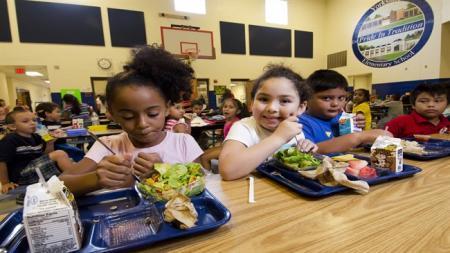
After a little questioning, the student put her hands on her hips and said, “Dawson, you will want to know that I have not eaten for two days. I’m hungry.”
According to swtimes.com, a day later, a teacher sent a different student to the office for not doing his work. After talking with the student, Dawson found out he couldn’t focus because he had not eaten for days either.
“And it just really hit home with me that, oh my gosh, if these two aren’t eating, then I’ve got lots that aren’t eating,” Dawson said.
Without the benefit of school meals during breaks, many parents living in poverty have difficulty feeding their children.
Spradling schoolchildren can receive meals this week after the free summer meal plan ends. Breakfast will be 7:30-8:30 a.m., and lunch will be 11 a.m. to noon.
“They’re just so hungry; they can’t function,” Dawson said of her two students.
During the 2015-16 school year, the Fort Smith Public School District provided 1,294,803 free lunches to students, making free or reduced lunches 83.6 percent of the school lunches in Fort Smith, according to the 2016 Fort Smith Public Schools Report to the Public.
For the 402 students eating free or reduced lunches at Spradling, the meals the school provides are crucial, Dawson said.
Children who live in poverty have limited access to medical care, good nutrition and safe housing, said Dr. Salahuddin Kaddoura, a pediatrician at Sparks Plaza Family Practice.
The long-term effects of poor nutrition can lead to serious health problems, said Charolette Tidwell, the executive director of Antioch Consolidated Association for Youth and Family, a food pantry in the area.
